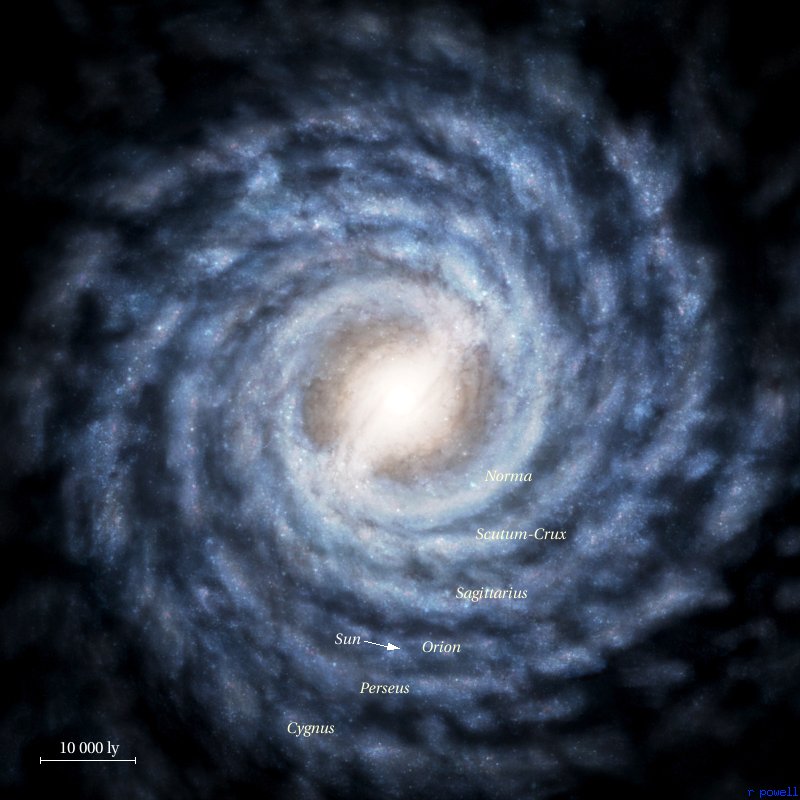Re: The Big Bang Theory -- An Amateur's Theory. Professional Ins
DrRocket":3ek2meww said:
Black holes need not spin. If they spin, the notion of clockwise or counterclockwise is, as MeteorWayne has tried to tell you, utterly meaningless without further qualification -- the selection of a specific reference frame. The direction of the angular momentum of an black hole can be anything, and there is no reason to believe that black holes are oriented with respect to one another.
Actually Dr. Rocket, my conclusion of the "spin" of the black hole came from your very own Einstein. I'm sorry you missed his chapter on Einstein-Rosen bridges.

I know a little about Einstein, but not nearly as much as I assumed many of you do. Hence why I ask the questions.
DrRocket":3ek2meww said:
A wormhole is NOT a connection between two black holes. I have no idea where you got that idea. Perhaps from Hollywood. Certainly not from a physics book.
Hollywood? Hardly. Lorentzian wormholes also known as Schwarzschild wormholes or Einstein-Rosen bridges are bridges between areas of space that can be modeled as vacuum solutions to the Einstein field equations by combining models of a black hole and a white hole. This solution was discovered by Albert Einstein and his colleague Nathan Rosen, who first published the result in 1935. However, in 1962 John A. Wheeler and Robert W. Fuller published a paper showing that this type of wormhole is unstable, and that it will pinch off instantly as soon as it forms, preventing even light from making it through. However in this instance I am questioning to whether or not any singularity rotation from either end would interact with the rotation at the other.
DrRocket":3ek2meww said:
The problem with wormholes is not only difficulty in their formation. It is an extreme problem with keeping one open if it should happen to exist for whatever reason. In order to maintain even a small wormhole open, in theory, you need a tremendous quantity of exotic negative energy. Even if such energy existed, and there is no clear evidence that it does, you would need to have a quantity that would be representative of the mass of a galaxy converted to energy to do the trick.
I totally agree with you. We haven't found any evidence of wormholes existing, however the theory predicts they may. Schwarzschild's wormholes had a stability problem which before they were apparent, it was proposed that quasars were white holes forming the ends of wormholes of this type. While Schwarzschild wormholes are not traversable, their existence inspired Kip Thorne to imagine traversable wormholes created by holding the 'throat' of a Schwarzschild wormhole open with exotic matter (material that has negative mass/energy). This is about my extent on the subject though. I just thought the galactic formation might indicate a direction of rotation for the singularity.
DrRocket":3ek2meww said:
Your conjecture regarding the relationship between black holes having angular momenta in opposite directions is without basis and without merit.
I absolutely disagree. It is in the spiral galaxy formation we see how the stars remain in rotation around the galactic center. I know Dark Matter in affect helps keep these galaxies together, however is it not the momenta of the galactic center in the spiral galaxies early in their development (shortly after the big bang) that began and continues this rotation? For example Sa and SBa galaxies, have tightly wrapped arms, whereas Sc and SBc galaxies have very "loose" arms. Could this not be interpreted as either a stronger or weaker momenta from the galactic center in relation to the surrounding stars that make up these arms, or an increase/decrease in the amount of present dark matter?



